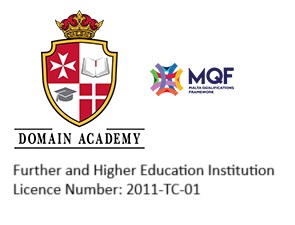Undergraduate Diploma in Human Resources, Marketing and Finance
This programme of studies is intended to introduce participants to the three different professions of Human Resources, Marketing and Finance, whilst simultaneously providing a basis that could lead to further studies in any of these areas or a related area in business studies.
Intake
October
EQF / MQF Level
Level 5
Mode of Delivery
Traditional
Duration of Course
1 Academic Year, 3-hours, Twice a Week (Full-Time and part-time options available)
Operational End Date
N/A
N/A
ECTS Credits
60 ECTS
Programme Qualifies for
Get Qualified Scheme
Certificate after completing
Student Success Rate
100
Intake
October
EQF / MQF Level
Level 5
Mode of Delivery
Traditional
Duration of Course
1 Academic Year, 3-hours, Twice a Week (Full-Time and part-time options available)
Operational End Date
N/A
N/A
ECTS Credits
60 ECTS
Programme Qualifies for
Get Qualified Scheme
Certificate after completing
Student Success Rate
100
Course Description
Through the various modules covering these three areas, participants will also be able to improve their learning and understanding of specific work-related situations with which they may already be in contact.
By the end of the programme the learner will be able to:
a) Work with financial and non-financial information for both organization and personal decision making purposes.
b) Carryout financial analysis to determine an organisation’s performance.
c) Lead effectively one or more groups of people in an organisation’s Human Resources, Finance, Marketing or Administrative departments.
d) Applymarketing principles to implement one or more specific marketing activities within a specific organisation.
e) Develop and implement a marketing plan for a product or service.
f) Identify and implement innovative solutions to meeting employees’ training and development requirements within a specific organization.
g) Analyse and interpret an organisation’s financial statements to help an organisation make better use of its’ financial resources.
h) Preparere commendations for superiors to improve business performance in areas such as organisational profitability, market attractiveness, staff motivation and engagement and customer satisfaction.
This programme has exit award milestones along the path, and modules which can be taken indipendently as awards.
Target Group:
Learners who wish to widen access to higher education and improve the career prospects within the HR sector.
This qualification is ideal for learners who have obtained the matriculation certificate or relevant qualification at MQF/EQF Level 4 and would like to peruse a progression route to a degree-level study in Human Resource management. It is also suitable for mature learners who are currently employed and wish to change or advance their career in HR.
Target Audience:
- 19+
Course Language:
English
Where you will learn:
What you will study
How will you learn
This diploma is delivered with a flexible classroom-based method, through a variety of course materials, case studies, discussions, presentations, enquiry-based learning and problem-solving activities. We provide you with key reading and research activities, and you will make the most of our own teaching portal.
Where you will learn:
Lessons will be held in class in our premises at Domain Building, 102/104, Constitution Street, Mosta.
Assessment
Formative assessment
The goal of formative assessment is to monitor student learning to provide ongoing feedback that can be used by lecturers to improve their teaching and by students to improve their learning and development. More specifically, formative assessments throughout the modules will:
– help students identify their strengths and weaknesses and target areas that need improvement
– help lecturers recognise where students are struggling and address problems immediately
Summative assessment
Assessments will be designed according to the guidelines of each module specification. In general, the assessments will enable learners to demonstrate achievement of learning outcomes across the individual elements of the program. The range of assessments utilized will normally include essays, reports, presentations and other structured assignments.
Assessments are drafted in conjunction with the curriculum development department and tutor concerned. Final version is confirmed by the curriculum development department.
Assessments are moderated by tutor concerned, then also verified by the Internal Verifier.
The assessment will be based on assignment for each module. There may be one or two assignment for each module.
The assignment will consist of criteria related to each topic within the module with the respective outcomes.
Entry Requirement
Applicants should have either a minimum of 2 passes at A level or an equivalent recognised MQF Level 4 award or qualification (as appropriate), or the equivalent of 3 years working experience in a field/role deemed to be related to the subjects covered in this course.
Alternatively, applicants having completed their secondary level of education (MQF Level 3) and having 5 years’ working experience of an administrative nature or in a field/role deemed to be related to the subjects covered in this course will also be considered.
In the case or students whose first language is not English, then IELTS 6 or equivalent is required.
In certain circumstances, applications from students with considerable relevant work experience but with no or limited formal qualifications may be considered, subject to an interview in which they would need to demonstrate their ability to follow the course successfully.
Fees & Funding
MFHEA Licence Nº: 2011 – TC – 01
Further and Higher Education Institution
Listen to what our past students had to say;
Domain Academy proudly collaborates with:



28 Years
of Excellence
8,000+
Satisfied Alumni
98%
Student Success Rate
250+
Active Students















